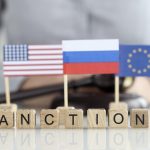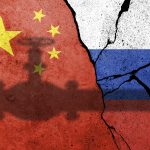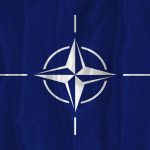When EU foreign ministers meet at the end of August in Denmark, the current Council Presidency holder, the agenda is expected to include increasing pressure on Russia. President Vladimir Putin will only reconsider his maximalist demands on Ukraine and Europe – and consider a ceasefire or even a broader agreement – if faced with sustained costs.
The European External Action Service is preparing the EU’s 19th Russia sanctions package. Its objective is to impose economic sanctions targeted at complicating Russia’s ability to sustain its war of aggression, now in its fourth year, and further weaken Russia’s already ailing economy. Russian crude oil remains a central lever.
Depleting Russian oil revenues is key to stopping the war
Oil still accounts for nearly 40 percent of Russia’s exports, generating billions in revenue despite reduced EU imports. Since Russia invaded Ukraine on 24 February 2022, Moscow has earned more than €900 billion from fossil fuel exports. Limiting these revenues would be a significant blow, but requires coordinated measures with Russia’s major buyers outside the EU. Without their participation, Moscow’s export earnings remain largely intact.
Russia used to be the EU’s largest supplier of petroleum oils. Since the full-scale invasion of Ukraine, the EU has cut its own Russian oil imports. The share fell from about one-third in 2021 to only 2 percent in the first quarter of 2025. Yet Moscow has successfully diverted exports to non-EU markets. Only if countries such as India, China, Israel and NATO member Turkey – all of which have sharply increased Russian oil imports – stop buying, would Moscow face painful revenue losses.
Ahead of the Alaska Summit, President Donald Trump floated the idea of import tariffs as secondary economic sanctions. Russian President Vladimir Putin’s active outreach to China, India and other like-minded countries in the context of the recent United States-driven summit diplomacy underscores how important these counterparts are to him.
Need for structural impact
Sanctions are most effective when coordinated and loopholes are closed jointly. But right now, transatlantic coordination failure has security implications.
The EU itself is reluctant to impose secondary sanctions. This increases the importance of targeting the war economy structurally, beyond Russian energy. Additional restrictions on Russian banks, dual-use goods and financial flows, as well as tighter controls on circumvention through third countries, are being discussed.
The 18th Russia sanctions package, adopted after lengthy negotiations, significantly lowered the oil price cap from $60 to $47.60 per barrel. Further tightening of oil-related measures, including logistics, will likely remain contentious among EU member states.
Expectations for the 19th sanctions package against Russia
Given the unanimity requirement, further radical new steps in the energy sector are unlikely. However, precise fine-tuning and strict enforcement could at least measurably increase effectiveness. Additionally, targeted sanctions on Russia’s “shadow fleet”, which is used to evade the oil price cap, make sense.
According to Vladyslav Vlasuk, the Ukrainian President’s commissioner for sanctions policy, the new package should also target the vessels themselves – and their frequent ports of call, including, for instance, those in Turkey and India. The same applies to captains and brokers who facilitate circumvention.
Expect more individuals and companies to be on the sanctions list, as well as targeted export restrictions on high technologies and measures against companies demonstrably involved in circumvention. Sanctioning European companies profiting from illegal trade with Russia is essential for the European Commission’s credibility in negotiations with third countries.
For the 19th sanctions package to be effective, the EU should focus on consistently closing evasion channels, such as sending clear signals to third countries that repeated support for Russian companies and the Russian government could mean economic consequences. Financially and technologically decoupling Russia contributes to hindering its military modernisation in the long run.
The supply of war-relevant goods via third countries remains highly problematic, despite some earlier successes. According to an internal German Foreign Office report of the EU Foreign Affairs Council’s May meeting in Brussels, China and Hong Kong are the “main hubs” for sanctions evasion. In the confidential paper, EU sanctions envoy David O’Sullivan complained that China is “responsible for around 80 percent of circumvention”, but continues to deny this.
Another issue is the Russian Central Bank’s assets held in Belgium by the trust company Euroclear. The European Parliament has long called for using these assets to support Ukraine. So far, around €260 billion in Russian foreign reserves have been frozen, with only the interest income seized and used to help fund the EU’s share of a G7 $50 billion loan to Ukraine, among other things.
Unity as a prerequisite
Opponents of confiscation cite the credibility of Europe’s financial market and legal certainty. However, with Ukraine’s need for defence, which has become increasingly critical, and mounting evidence of war crimes by Russian armed forces, a rethink has begun, including in German politics.
As a result, legal options for using the funds are being explored. This is overdue. It is hard to see why confiscating these funds for Ukraine would trigger a crisis in Europe’s financial market. The scale of Russia’s latest war of aggression against Ukraine and the European security order clearly constitutes a special case.
As with all sanction decisions, all 27 EU member states must agree. Past debates have shown how difficult that can be. But only a united approach – both to end Russia’s current war of aggression and to weaken its war industry more broadly – can uphold the Union’s credibility and its founding aspiration to act as a peace project.
About the author
Miriam Kosmehl is Senior Expert on Eastern Europe and EU Neighbourhood at the Bertelsmann Stiftung.
Read more about Russia sanctions
Sanctions Against Russia – Limited Success, but Not Fruitless









Write a comment